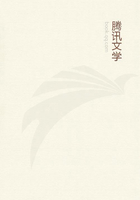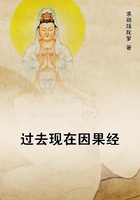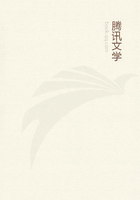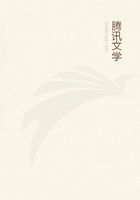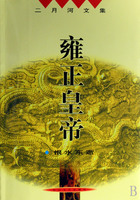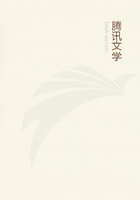For wit lying most in the assemblage of ideas, and putting those together with quickness and variety wherein can be found any resemblance or congruity, thereby to make up pleasant pictures and agreeable visions in the fancy: judgment, on the contrary, lies quite on the other side, in separating carefully one from another, ideas wherein can be found the least difference, thereby to avoid being misled by similitude, and by affinity to take one thing for another. This is a way of proceeding quite contrary to metaphor and allusion, wherein, for the most part, lies that entertainment and pleasantry of wit which strikes so lively on the fancy, and is therefore so acceptable to all people."This is, I think, the best and most philosophical account that Ihave ever met with of wit, which generally, though not always, consists in such a resemblance and congruity of ideas as this author mentions. I shall only add to it, by way of explanation, that every resemblance of ideas is not that which we call wit, unless it be such an one that gives delight and surprise to the reader. These two properties seem essential to wit, more particularly the last of them. In order, therefore, that the resemblance in the ideas be wit, it is necessary that the ideas should not lie too near one another in the nature of things; for, where the likeness is obvious, it gives no surprise. To compare one man's singing to that of another, or to represent the whiteness of any object by that of milk and snow, or the variety of its colours by those of the rainbow, cannot be called wit, unless, besides this obvious resemblance, there be some further congruity discovered in the two ideas that is capable of giving the reader some surprise. Thus, when a poet tells us the bosom of his mistress is as white as snow, there is no wit in the comparison; but when he adds, with a sigh, it is as cold too, it then grows into wit. Every reader's memory may supply him with innumerable instances of the same nature. For this reason, the similitudes in heroic poets, who endeavour rather to fill the mind with great conceptions than to divert it with such as are new and surprising, have seldom anything in them that can be called wit.
Mr. Locke's account of wit, with this short explanation, comprehends most of the species of wit, as metaphors, similitudes, allegories, enigmas, mottoes, parables, fables, dreams, visions, dramatic writings, burlesque, and all the methods of allusion: as there are many other pieces of wit, how remote soever they may appear at first sight from the foregoing description, which upon examination will be found to agree with it.
As true wit generally consists in this resemblance and congruity of ideas, false wit chiefly consists in the resemblance and congruity sometimes of single letters, as in anagrams, chronograms, lipograms, and acrostics; sometimes of syllables, as in echoes and doggrel rhymes; sometimes of words, as in puns and quibbles; and sometimes of whole sentences or poems, cast into the figures of eggs, axes, or altars; nay, some carry the notion of wit so far as to ascribe it even to external mimicry, and to look upon a man as an ingenious person that can resemble the tone, posture, or face of another.
As true wit consists in the resemblance of ideas, and false wit in the resemblance of words, according to the foregoing instances, there is another kind of wit which consists partly in the resemblance of ideas and partly in the resemblance of words, which for distinction sake I shall call mixed wit. This kind of wit is that which abounds in Cowley more than in any author that ever wrote. Mr. Waller has likewise a great deal of it. Mr. Dryden is very sparing in it. Milton had a genius much above it. Spenser is in the same class with Milton. The Italians, even in their epic poetry, are full of it. Monsieur Boileau, who formed himself upon the ancient poets, has everywhere rejected it with scorn. If we look after mixed wit among the Greek writers, we shall find it nowhere but in the epigrammatists. There are indeed some strokes of it in the little poem ascribed to Musaeus, which by that as well as many other marks betrays itself to be a modern composition. If we look into the Latin writers we find none of this mixed wit in Virgil, Lucretius, or Catullus; very little in Horace, but a great deal of it in Ovid, and scarce anything else in Martial.
Out of the innumerable branches of mixed wit, I shall choose one instance which may be met with in all the writers of this class.
The passion of love in its nature has been thought to resemble fire, for which reason the words "fire" and "flame" are made use of to signify love. The witty poets, therefore, have taken an advantage, from the doubtful meaning of the word "fire," to make an infinite number of witticisms. Cowley observing the cold regard of his mistress's eyes, and at the same time the power of producing love in him, considers them as burning-glasses made of ice; and, finding himself able to live in the greatest extremities of love, concludes the torrid zone to be habitable. When his mistress has read his letter written in juice of lemon, by holding it to the fire, he desires her to read it over a second time by love's flames. When she weeps, he wishes it were inward heat that distilled those drops from the limbec. When she is absent, he is beyond eighty, that is, thirty degrees nearer the pole than when she is with him. His ambitious love is a fire that naturally mounts upwards; his happy love is the beams of heaven, and his unhappy love flames of hell.


